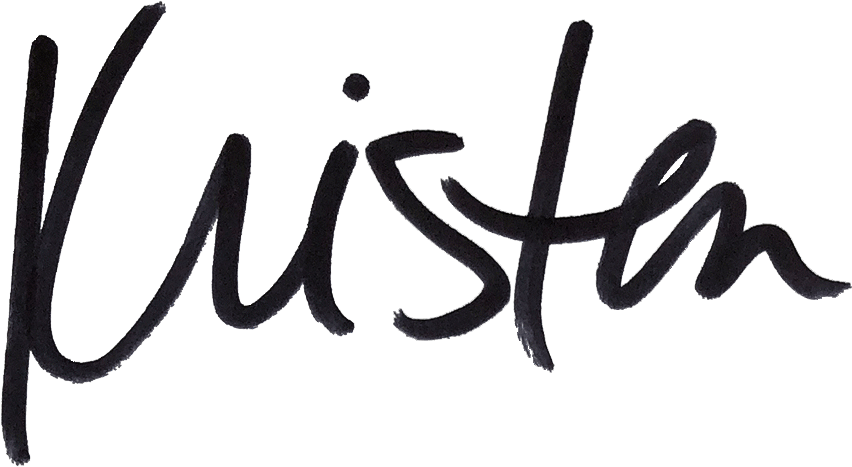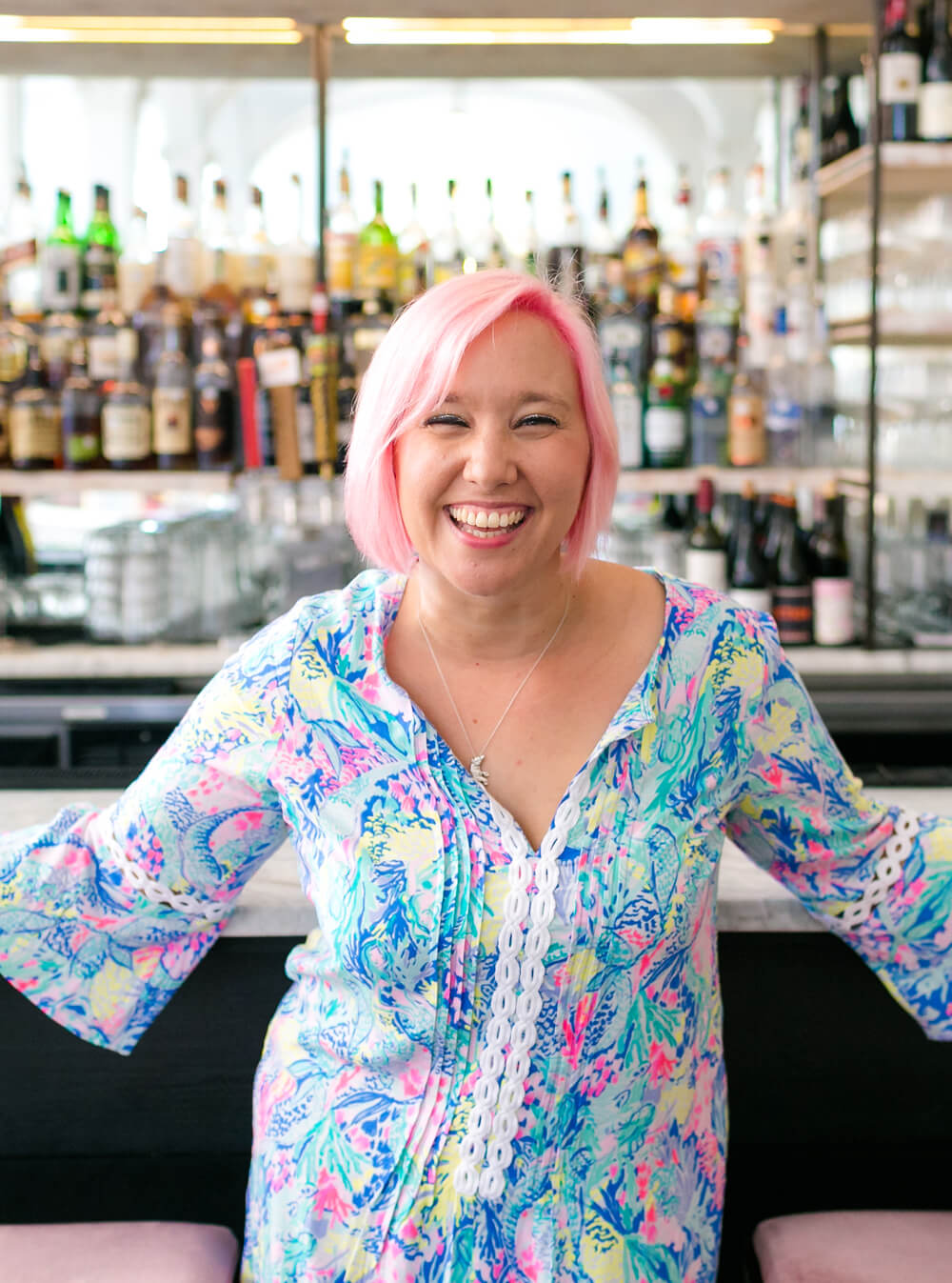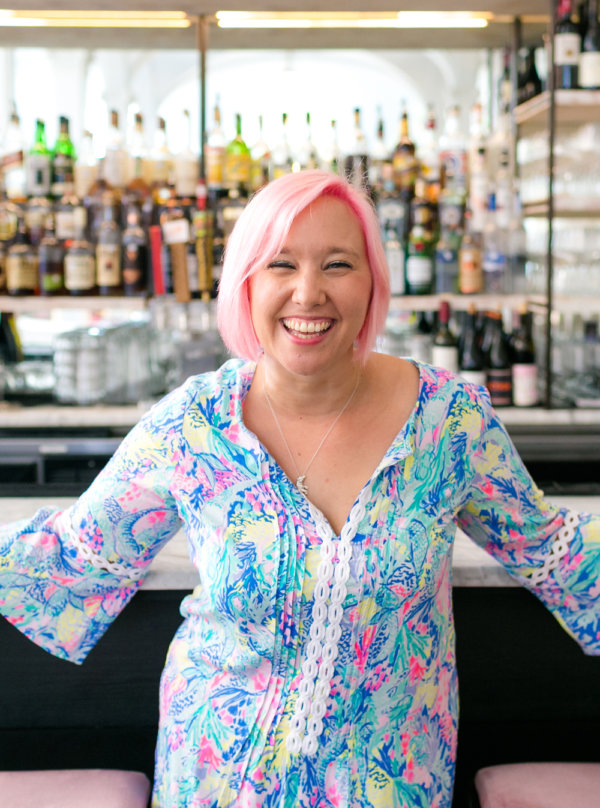Let’s review what we’ve done so far in the Voice series, shall we?
First, we determined that your work is not your worth.
Then, we talked about what your work and worth have to do with your voice.
Last week, we covered the four elements of a resonant voice in the modern world, and I introduced you to the ‘wild’ element by teaching you how to take time off. (Which is something 100% of my clients ask for help with, so please don’t think I’m being patronizing. It took me years to learn how to run a business and then, at times, leave the business alone so that I could be a human with a life outside of my work.)
Today, let’s dive into Kind.
Nice and kind are not the same.
They sound the same, and I’ll bet some people even use the two words interchangeably, but they’re about as far apart as two similar-ish words can get.
Let’s start with a deep dive into Nice.
Nice lets racist, sexist, and any other -ist comments slide because she ‘doesn’t want to rock the boat.’
Nice doesn’t start important conversations about politics, religion, money, or health issues because ‘we don’t talk about such things.’
Nice is always ready to become a martyr and let self care slide.
Nice says ‘Yes’ and means ‘No.’
Nice says ‘I don’t know’ and means ‘Oh hell no.’
Nice breeds the sinking feeling that no one knows the ‘real’ you, since you haven’t let the ‘real’ you out to play for months/years/decades.
In other words: nice breeds resentment.
When you let others’ needs run roughshod over your own, you naturally come away feeling like you got the short end of the stick.
If people have taken the last of your good and vital energy on any given day — and it’s not yet 11 a.m. — you have no choice but to hate everyone just a little. That’s the nature of being depleted. And holy shit, do you resent the people who deplete you.
Kindness, on the other hand.
Kind takes care of itself.
Kind knows its own value.
Kindness treats the gifts you steward as important.
Kind also makes boundaries.
Good, firm, steady boundaries that prevent it from slipping into martyrdom.
When I say ‘boundaries,’ I’m not talking about that time your cousin was addicted to some drug and you refused to give her money to buy more, or that time a guy said he wanted to take you home from the bar and you said “No thanks.” Those are examples of boundaries in action, but they’re pretty extreme and obvious. Of COURSE you can stand up for yourself in dramatic situations like those.
Boundaries are the everyday practices you implement that teach people how to treat you.
Boundaries can be as simple as not answering your phone after 8pm, choosing to return voicemails within 48 hours instead of 1 or 2 minutes, or refusing to eat at fast food chains because of the unfair treatment of workers.
Everyday practices that teach people how to treat you look a lot like how you respond to e-mails and phone calls, when you let screens into your life, how much time you work, how much time you take off, how much influence you let others’ opinions have on you, and whether or not you’re willing to bend over backwards in any given situation.
You’re teaching people how to treat you.
Right now. All the time.
Boundaries make it easier to get people to treat you well.
They are a kindness to yourself and to those entering your sphere, whether as a client, a colleague, or a friend. When you get a grip on boundaries, you’re growing more satisfied with your life as it now stands. Because asking for ten minutes alone before you come downstairs to make breakfast is a small but relevant change, right?
Likewise, taking Sunday mornings off to lie in bed and eat pancakes won’t cost much, but you’ll appreciate that time more than the entirety of the rest of the week, combined, if you’ve been aching for a break.
Drawing boundaries around your time can be tricky, but it’s a necessary part of making space for good shit to appear in your life. You’ll need to prioritize some things while de-prioritizing others in order to get what you want.
To get started with the kindness of boundary-making in a simple and quick way for your business, just complete these four sentences:
__________ takes a disproportionate amount of my energy without giving me much in return.
In order to create _______________, I have to give up ________________.
To bring ____________________ to life in the next few months, I can’t give a shit about
_______________________________________ anymore.
Committing to _______________________ means I have to stop _____________
__________________________.
Kindness means you’ve been a decent enough steward of your energies to actually be with people when you’re in public instead of wishing to go home and sleep. It means you’ve said ‘yes’ and ‘no’ and meant both of them without lying to anyone — including yourself — about your desires. It also means you’ve gotten in touch with what you want to do and with the work you want to create.
Kindness leads to giving from a much fuller tank, which splashes out and affects the quality of your every interaction.
Here are a few questions to help you spot the difference between nice and kind in your everyday life:
How many times in the past week have I said ‘yes’ when I really meant ‘no?’
How many times in the past week have I ignored commitments to myself in order to take care of others?
When do I have time that is designated as NOT ‘On’ — whether that’s working, caregiving, or both?
Which people in my life do I resent for my past niceness? Which clients? Which activities or appointments?
Is there any way that I’m martyring myself for my business, hoping that at some point I’ll ‘make it’ or ‘be successful’ and magically recover from years of overworking?
How often do I agree to special arrangements or other profit-eating timesucks instead of charging appropriately for the hassle?
If I were partnered with me in an intimate relationship, would I be happy about how much time I spend working, thinking about work, taking care of work, musing on work, planning for work, and fussing about work-related things?
What do I need to give up, ignore, or stop in order to practice kindness with myself?
What do I need to commit to in order to practice kindness with myself?
If any part of you is like, ‘HOLY SHIT KRISTEN I’M SO NICE AND I DIDN’T EVEN REALIZE IT, WHAT NOW!???’ A diagnosis of ‘Nice’ means you’re operating exactly as society has prescribed.
We’re trained to be nice to others since birth. We’re told to share, to smile, to talk to strangers, to hug relatives and the old people who smell like mothballs at church, to laugh at unfunny jokes, and to generally make others comfortable in every way before worrying about ourselves. Keep those practices in play for a couple of decades, and it’s no surprise that we wake up in adulthood to this fuckery.
We can see how incredibly UNkind we’ve been to ourselves for the sake of keeping others from being disappointed in us. Or worse, not liking us AT ALL.
You don’t have to be nice anymore. Kindness is the far more powerful and subversive option.
Start by telling the truth about what you want and refusing to take up the chains of martyrdom. Say ‘no.’ Ask for help. And take some time off, too.
If any part of you balked at that list, you’ve hit upon another truth: to be kind, you’ll also have to be brave.
Brave is where we’ll pick up next week, with part five of the Voice series.
Wild, kind, brave, and clear voices resonate with our souls the most deeply, and the Voice workshop will help you cultivate all four.
It goes down in Philadelphia on May 20th & 21st, and includes a host of classes, worksheets, follow-up, to help you take the steps to use your true-actual-raw-real voice in the world. Learn more or pick up your ticket now.




